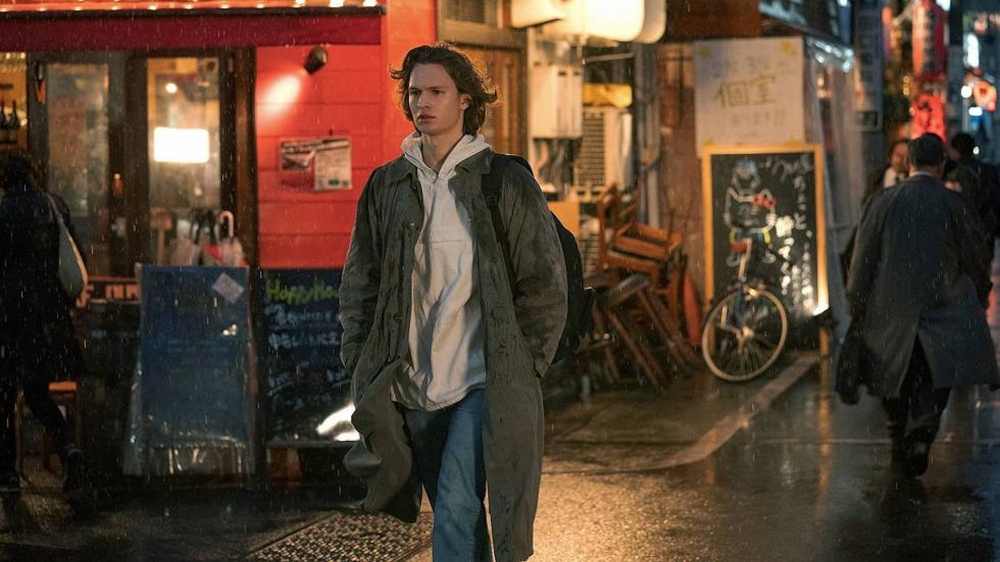
In HBO Max’s new crime thriller Tokyo Vice, which is loosely based on investigative journalist Jake Adelstein‘s 2009 memoir Tokyo Vice: An American Reporter on the Police Beat in Japan, J.T. Rogers paints a gritty picture of the seedy Japanese underworld, where dirty dealings between crime bosses and shady cops are uncovered in each of the series’ eight episodes.
As the creator, writer, and executive producer of Tokyo Vice, Rogers served as a triple threat, though putting pen to paper came most naturally for the Emmy-nominated screenwriter of Oslo, which he adapted for HBO based on his own Tony Award-winning play. As for balancing the creative and managerial responsibilities of a writer and showrunner, Rogers had to dig deep and rise to the occasion to meet the unique challenges of each job head-on, and he wasn’t ashamed to ask for advice from more seasoned showrunners. He learned the essentials through on-the-job training and was humbled by the experience on a daily basis.
Below the Line spoke with Rogers via Zoom from upstate New York on a beautiful spring day, with the sounds of birds providing the soundtrack to the conversation. He admits that, like the theater, art is not created in a vacuum, and it depends on establishing liaisons between every department. In that sense, Rogers was the perfect man for the job. He discusses how he worked with the makeup department to get the tattoos just right on Tozawa (Ayumi Tanida) and location scouts to address the challenges of shooting in Japan, as well as the language and dialect coaches for Ansel Elgort, who had to have the proper Japanese inflection and intonation as Adelstein.
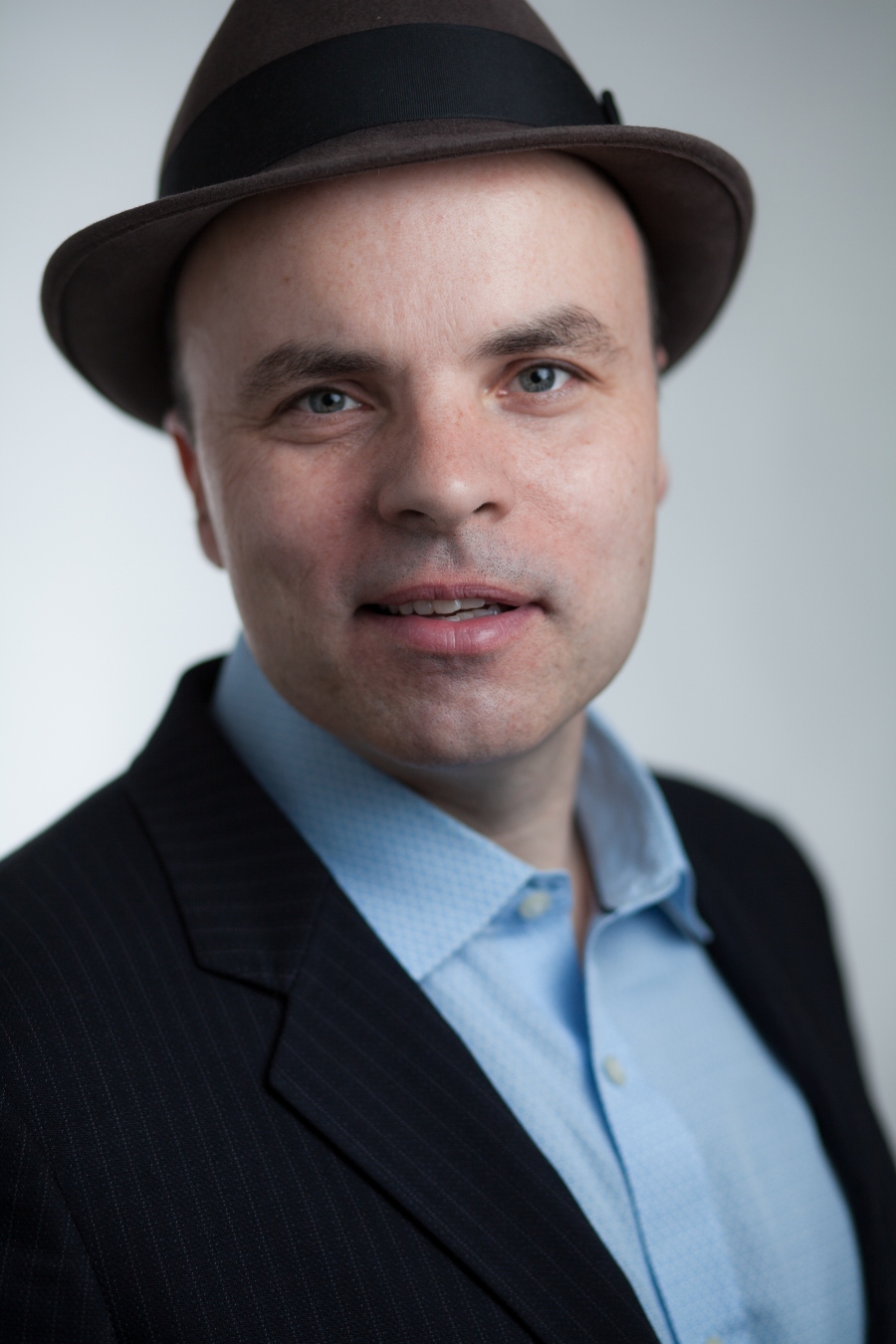
Below the Line: How much time did you spend in Japan working on the series?
JT Rogers: I lived there for eight months during Covid. We were basically locked in country. As the showrunner, I couldn’t leave because I’d have to be in quarantine for 14 days even if I only left for 12 hours. We were there for a long time.
BTL: What was the writing process for you?
Rogers: I did my work and all the scripts before we went. In the pilot that I used to set the show up with, the first episode was all written as I saw it in my mind. One of the pleasures of doing a long-form telling like this is that as you get deeper into the back third of shooting where the actors are understanding their characters, there were times where I would change the lines because oftentimes with Ken’s character or Sato (Shô Kasamatsu) they don’t have to say so much. They can just say it with a look or just three words. When we were in Japan, and as a first-time showrunner I learned that you’re constantly working on the scripts because we don’t have time for that, or we lost that location or we don’t need that anymore because it’s clear in episode 3 and I’d rather not have that scene there. That’s sort of the fun part which is the fashioning on the fly where you have to work to the world in which you’re shooting in.
BTL: Considering this was your first time as showrunner, how would you describe the overall experience?
Rogers: It was a good experience to be ignorant on. I spoke to a lot of other showrunners. I learned of the sort of showrunner Bat Phone. That if you become a showrunner you can call people and it doesn’t matter what, their legs could be mid amputation and they’ll call you back because we all have to take care of each other. I got a lot of marvelous advice. Before doing any of it, one of the themes or comments almost verbatim kept coming from seasoned showrunners was, some variation of this, “it’s sort of like going to war. You just have to do it. I can’t really explain it to you.” Which I thought of a lot when I was on set.
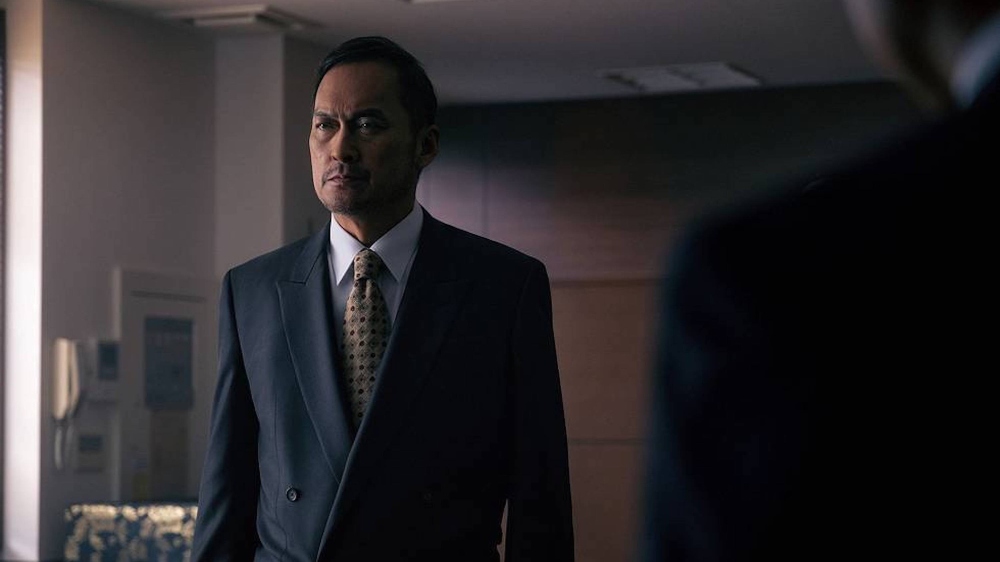
BTL: What was your biggest takeaway from that advice?
Rogers: Even more than other art forms, it’s such a creative endeavor making a vast television show. So I created the show, this that and the other, but this is a collaborative effort by hundreds of people and I was very frank with everyone at work. I said you’re gonna ask me things and when I don’t know what you’re talking about I’m just gonna say, ‘I’m sorry, I don’t know what that is.’ That helped me, certainly, to be honest with the crew like I was.
BTL: Is showrunning something that you would like to do again?
Rogers: I loved it. I want to do another season. I come out of the theater and where else do you get to write the scripts but design tattoos and sit with the costumer, sit with the DPs and the directors, talk through everything with the actors, and then sit down with the location scout and say, ‘we need something a little bit more.’ You don’t get a lot of sleep but you are like a kid in a candy store on a good day.
BTL: In terms of working with the makeup artist, how were the tattoos of Tozawa designed?
Rogers: Art and craft are so prized culturally in Japan. There is such a tradition of excellence for lack of a better generic word. Tattoos are such a part of Japanese life especially Yakuza culture, the way we have gangster films of all stripes in the United States. It’s always been a staple similarly in Japan. There are scenes in the series where those are real tattoos people have; they’re ex-gangsters. One of the casting departments was someone who specializes in finding work for ex-Yakuza because it’s very hard to get work. So we had them as extras. But then there were times where the tattoos were artificial, which took hours each day to put on. A showbiz design from a western point of view, you are completely thrown into a world you don’t know and you have to play catch up. But you also need to create signposts so the audience, even subliminally, can understand and get pulled into the story which I find satisfying as a viewer. So I would sit with this couple who are our tattooists and try to work it out. I had very limited knowledge of what symbolic messages of the tattoos meant for the Yakuza. We had to sort out the images in pile A for the Tozawa-gumi and pile B for the Chōjiya-kai and be very consistent and rigorous about never crisscrossing those images so that we’re building a visual vocabulary, a specificity.
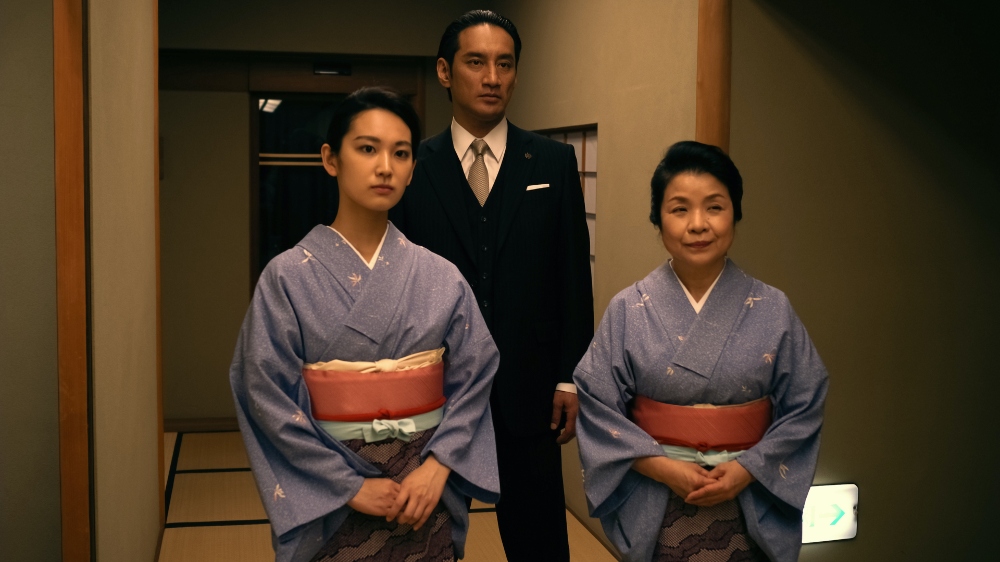
BTL: How did you collaborate in terms of the casting, especially finding the Japanese actors?
Rogers: More than once I turned to the producer and said [that] if I had known we had to cast all these parts, I would’ve written less roles. [laughs] You’re sort of the backstop as the showrunner on casting, but the directors obviously have say in each of their episodes. I very much would be casting with each director who has those characters introduced in their episode. The starting point was to find someone we both agreed on, and for each person, that was almost always the case. But then as you go, there are endless small roles, so at one point, I was like, ‘anyone who speaks under four lines, I’m just gonna cast them.’ What was neat about it, and a really wonderful example of meritocracy and talent rising, especially when you get beyond main actors and first-tier, for lack of a better phrase, Japanese actors, is that I don’t know anyone that I’m seeing, especially [for the] small parts. And you would be casting incredibly swiftly while multi-tasking. They come in and they’re amazing and you discover that Cop Number Six has a whole career but is so keen to do an American TV show that they’re willing to come in for a tiny part. From an instinctive artistic standpoint, I went, ‘that’s the person.’ There really is such a thing as talent rising to the top. The Japanese cast is just phenomenal.
BTL: Talk about rising stars, I was very much impressed with Shô Kasamatsu who plays Sato.
Rogers: You’re not alone, sister! I was watching with my wife and she’s like, ‘Bloody hell.’
BTL: You had the language factor to deal with as well. How did you work with the dialect coach?
Rogers: We had Japanese actors learning English and Ansel learning fluent Japanese. It was really a lift for the actors. They really attacked it with gusto which was very exciting. Ansel had his own specific dialect coach. There’s only three Western parts in the whole series and they had to speak fluent Japanese which was a lot. Japanese is a lot like French in that it’s not just learning the language but how you perform it. How it sounds, the presentation, and the intonation and almost the artistry of it is what is really speaking good Japanese. So you can’t just learn your lines. It requires a lot more finesse and a deeper understanding of the language. All the English dialogue had to be translated into Japanese and then transliterated because if you said the literal translation of my dialogue it would sound awful. Then you would have someone like Ken Watanabe (Hiroto Katagiri) put his hand over everything when we would write a scene. It was a great beast with many moving parts.
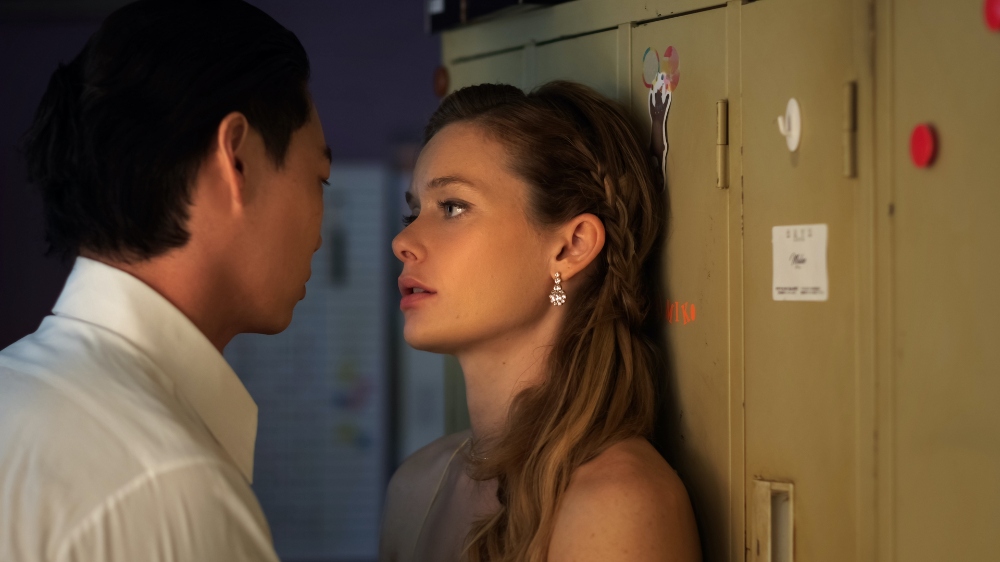
BTL: What were some of the challenges finding locations in Japan?
Rogers: We shot things out of sequence because of the challenge of getting locations in Tokyo. It’s a city not set up to shoot on location. Ignorance is bliss in that I didn’t really have an understanding of that. Had I known we would’ve shot less on location but I’m so thrilled that I didn’t know. We had an under-manned department because of Covid with people working around the clock to find places. Katagiri’s home was 90 minutes from Tokyo. There’s an airplane sequence and finding an airport we could shoot would be hours and hours away. There were a number of locations in this season with extraordinary food halls and a really elegant Barneys of Tokyo, as it were, which we would never have had [if not] for Covid because it was shut down. It was difficult to organize but allowed us paradoxically more access.
BTL: What was most rewarding for you, and what is the status of a potential Season 2?
Rogers: As with everything, we’re waiting for the great metric in the sky, but the signs are good. I don’t wanna jinx it. I’m ready to go. The cast keeps calling me and it’s not my call, but yes, we’re doing it. It’s all here and ready to go if we get the green light. It’s a great story and it’s a great world. It’s out of our hands but it’s very moving how everyone involved in the first season dearly wants to do more. That’s meant a lot. The most rewarding in a splendor of different things was working with the Japanese crews and Japanese department heads. I just love their energy and their smarts and their ability to delicately teach me things without me realizing it, and their willingness to do anything I asked, and the other producers asked. It was just amazing.
Tokyo Vice is now streaming on HBO Max in its entirety.





